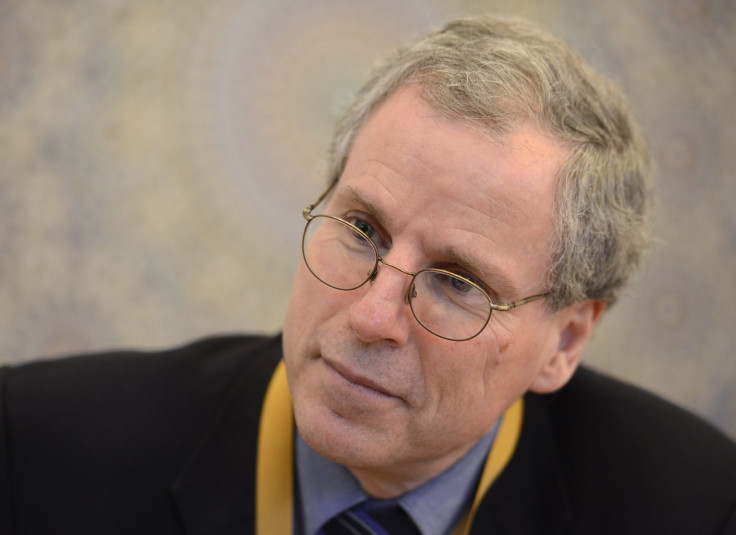Former US Ambassador To Syria Rob Ford Slams Obama Administration Policy

Former U.S. ambassador to Syria Robert Ford said he resigned from his post because he could no longer defend the Obama administration’s Syria policy.
In an interview on CNN’s "Amanpour" show on Tuesday, he said the administration's policy failed to address the root causes of the conflict or stop President Bashar Al-Assad from using chemical weapons against civilians.
Ford, who was instrumental in working with the Syrian opposition and getting them to agree to peace talks, stepped down from his post in March. Tuesday marked the first time Ford stated publicly why he resigned. He is also the first U.S. official who worked on the Syrian conflict to call out the Obama administration publicly for not doing enough to resolve the conflict.
“I was no longer in a position where I felt I could defend the American policy,” he told Amanpour. “We have been unable to address either the root causes of the conflict in terms of the fighting on the ground and the balance on the ground, and we have a growing extremism threat.”
Ford said the Obama administration’s policy on Syria is ineffective at resolving any part of the Syrian conflict, including the complete eradication of Assad’s chemical weapon stockpiles.
“There really is nothing we can point to that’s been very successful in our policy except the removal of about 93 percent of some of Assad’s chemical materials," Ford said. "But now he’s using chlorine gas against his opponents.”
After a deadly chemical attack last August in Ghouta, Syria, the U.N. Security Council unanimously adopted a resolution requiring the country to get rid of all of its chemical weapons. The timeline set by the Organization for the Prohibition of Chemical Weapons said Syria’s entire chemical weapon stockpiles would be eradicated by mid-2014, but a recent Human Rights Watch report said the regime may have used chlorine gas in attacks in April.
The report also said that regime helicopters may have dropped barrel bombs filled with chlorine gas on towns in the northern part of the country. Chlorine gas is a chemical agent that's a prohibited weapon of war under international law.
Ford said the White House should be more proactive in helping the moderate opposition fight Assad's forces.
“The United States and our friends, we have tools that could put greater pressure on Bashar al-Assad,” Ford told Amanpour. “Especially as the extremist threat to the United States and to our friends emanating out of Syria grows, I think we really must consider carefully whether or not we are doing all we can to help our friends in Syria.”
The commonly held view in Washington is that ramping up support for the opposition is risky because no one knows exactly which groups are affiliated with the opposition. Members of Congress and Secretary of State John Kerry have said Washington needs to wait to arm the rebels with more sophisticated weaponry, such as anti-aircraft missiles, until it can ensure such hardware won't fall into the hands of extremists.
But Ford said those claims are no longer valid.
“We've identified them quite well now," he said. "Some people say, well, we don't know them well enough; we can't depend on them. We know them quite well. We've worked with them for years.”
It is not clear who will replace Ford, and U.S. officials have not said when they will name a new ambassador to Syria.
© Copyright IBTimes 2024. All rights reserved.





















